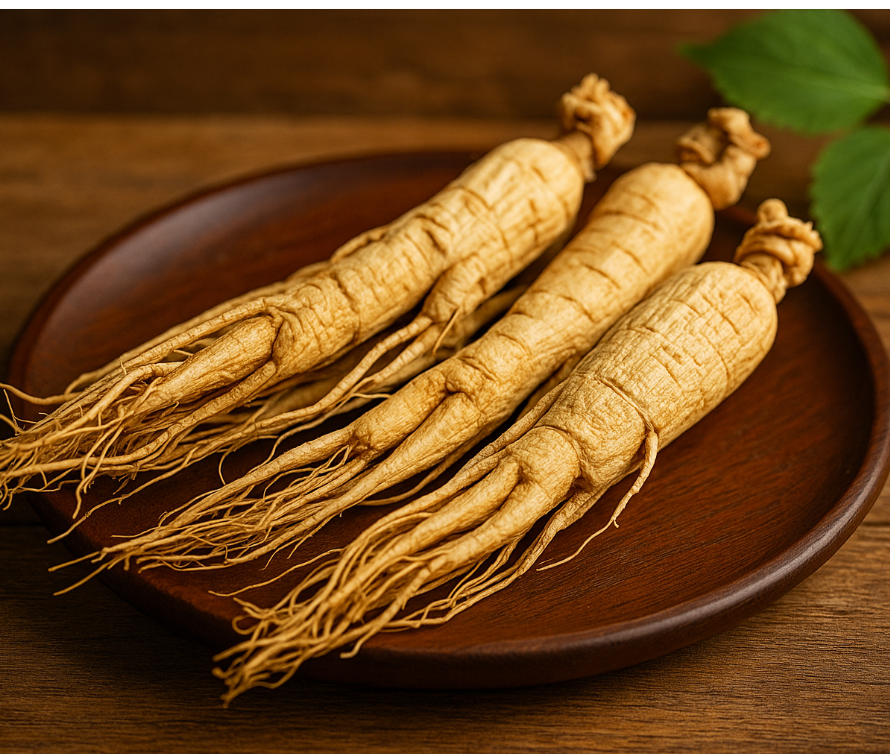Korean red ginseng (Panax ginseng C.A. Meyer) remains one of the world’s most renowned herbal remedies, treasured for centuries in Asia and now widely recognized across the globe. In 2025, renewed scientific research, market growth, and cultural recognition continue to highlight the importance of red ginseng as a functional food and wellness product. This article will explore its history, health benefits, current scientific studies, challenges, and how consumers can select authentic, high-quality products.
A Brief History of Korean Red Ginseng
Red ginseng differs from fresh white ginseng because it undergoes a steaming and drying process, transforming its chemical composition. This method, used in Korea for over 1,000 years, enhances the potency and stability of the root while creating distinctive ginsenoside compounds not found in raw ginseng. Historically, Korean kings and scholars consumed red ginseng for longevity, stamina, and cognitive clarity. Today, it remains Korea’s most iconic health export.
Modern Health Benefits of Red Ginseng
1. Energy & Fatigue Reduction
Multiple studies have confirmed red ginseng’s adaptogenic effects—helping the body resist stress while enhancing stamina and reducing fatigue. Office workers, athletes, and students often use it to boost both physical and mental performance.
2. Immune System Support
Red ginseng contains bioactive ginsenosides and polysaccharides that help regulate immune responses. Clinical studies show improved natural killer (NK) cell activity, balanced cytokine levels, and faster recovery from stress-related immune decline.
3. Blood Circulation & Cardiovascular Health
Ginseng enhances nitric oxide production, promoting better blood flow and reducing arterial stiffness. Some 2025 meta-analyses suggest modest but significant improvements in systolic and diastolic blood pressure, especially when consumed for 8–12 weeks.
4. Cognitive Function & Mental Clarity
Emerging data indicates red ginseng may support cognitive performance by reducing oxidative stress in the brain, improving memory retention, and enhancing focus—an important benefit for aging populations.
5. Metabolic Support
Recent trials show positive effects on insulin sensitivity, HbA1c, and lipid metabolism, making red ginseng a promising adjunct for individuals with prediabetes or mild metabolic issues.
Scientific Evidence in 2024–2025
- Randomized trials have confirmed benefits in fatigue reduction and improved glucose control.
- Systematic reviews report improvements in vascular health and blood pressure regulation.
- Long-term studies continue to evaluate safety and potential use in chronic conditions like mild pancreatitis, with evidence of enhanced quality of life.
Challenges and Criticisms
Despite promising evidence, challenges remain:
- Variability in products: Not all ginseng supplements contain standardized levels of ginsenosides.
- Exaggerated marketing claims: Some brands overstate benefits without robust scientific backing.
- Interactions: Red ginseng can interact with blood thinners, glucose-lowering drugs, and stimulants. Consumers should consult healthcare professionals before long-term use.
How to Choose Authentic Korean Red Ginseng
- Check origin: Look for products labeled “Made in Korea,” ideally certified by reputable institutions.
- Look for standardization: Products should list total ginsenoside content per serving.
- Check age of root: Six-year-old roots are considered the gold standard for potency.
- Form matters: Extracts, capsules, teas, and tonics all exist—match form to your lifestyle.
- Buy from trusted vendors: Authenticity guarantees safe, high-quality processing.
Global Market Outlook
The Korean red ginseng industry is expected to grow steadily through 2030, driven by rising interest in preventive healthcare, longevity, and natural remedies. From premium supplements to functional beverages, red ginseng continues to expand into international markets, making it one of Korea’s most successful cultural exports.
Conclusion
Korean red ginseng in 2025 represents the perfect blend of ancient tradition and modern science. Whether consumed for energy, immunity, circulation, or metabolic support, its value lies in both its cultural heritage and the growing body of clinical evidence. For health-conscious consumers worldwide, red ginseng is more than a supplement—it’s a natural ally in the pursuit of wellness and vitality.
🇰🇷 Premium Korean Ginseng Online Shop







